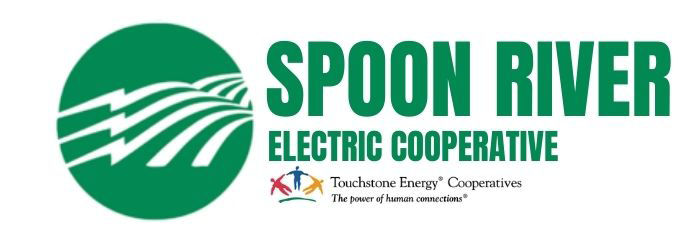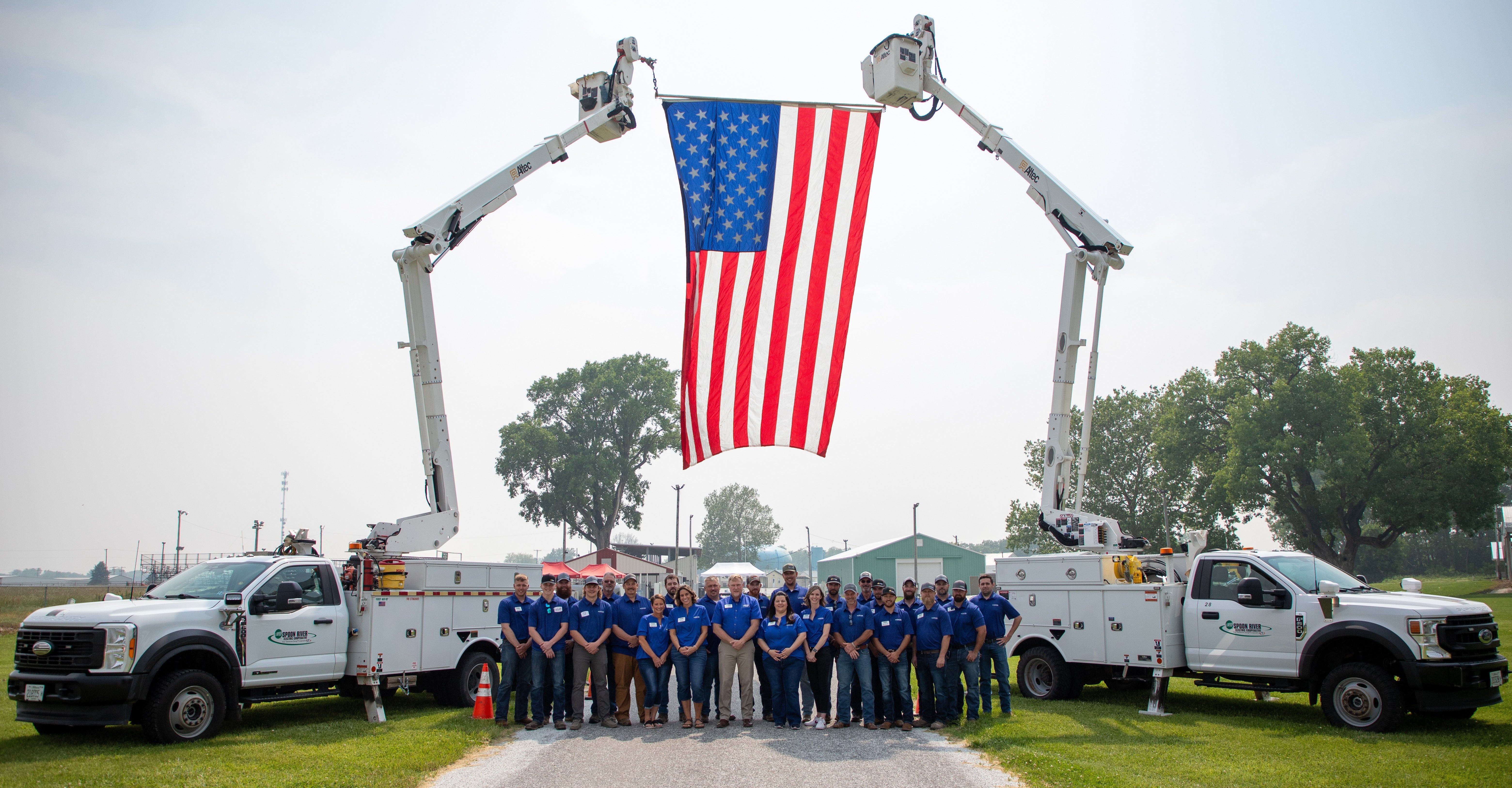Spoon River Electric is a small member-owned electric cooperative in Central, Illinois located in Canton. We serve approximately 4800 members within Fulton, Peoria, Knox, McDonough, and Schuyler counties. Spoon River Electric is governed by a board of directors and wholly owned by its members. We have 9 voting districts with a director representing each district. Approximately 30 employees work to serve all residential, farm, and industrial accounts throughout our service territory and surrounding areas.
SREC and other rural electric cooperatives operate differently than investor-owned utilities (IOUs), such as Ameren, here in central Illinois. We are not-for-profit. Any revenues over the cost of doing business and taking care of our system are margins, which represent the interest free loan of operating capital by the membership to the cooperative. This capital is later returned you, the member customer, in the form of capital credits.
We are a distribution utility, which means we do not generate our own power. We purchase power from Prairie Power, Inc. in Springfield, IL. Prairie Power is an electric generation and transmission cooperative, owned and controlled by rural electric cooperatives in Central Illinois.
Each year we hold an Annual Meeting in which all members are invited to vote on proposed policies, be involved in the operation of the co-op, and meet new directors and employees. You, the member, decides how the cooperative operates and what services it provides. Spoon River Electric potential Director information.
Spoon River and cooperatives throughout the country follow these seven guiding principles:
1. Voluntary and Open Membership: Open to all without gender, social, racial, political, or religious discrimination.
2. Democratic Member Control: One member, one vote.
3. Members’ Economic Participation: Members contribute equitably to, and democratically control, the capital of their cooperative. The economic benefits of a cooperative operation are returned to the members, reinvested in the cooperative, or used to provide member services.
4. Autonomy and Independence: Cooperatives are autonomous, self-help organizations controlled by their members.
5. Education, Training, and Information: Cooperatives provide education and training for their members so they can contribute effectively to the development of their cooperatives. They inform the public about the nature and benefits of cooperation.
6. Cooperation Among Cooperatives: Cooperatives serve their members most effectively and strengthen the cooperative movement by working together through local, national, regional, and international structures.
7. Concern for Community: While focusing on member needs, cooperatives work for the sustainable development of their communities through policies accepted by their members.

